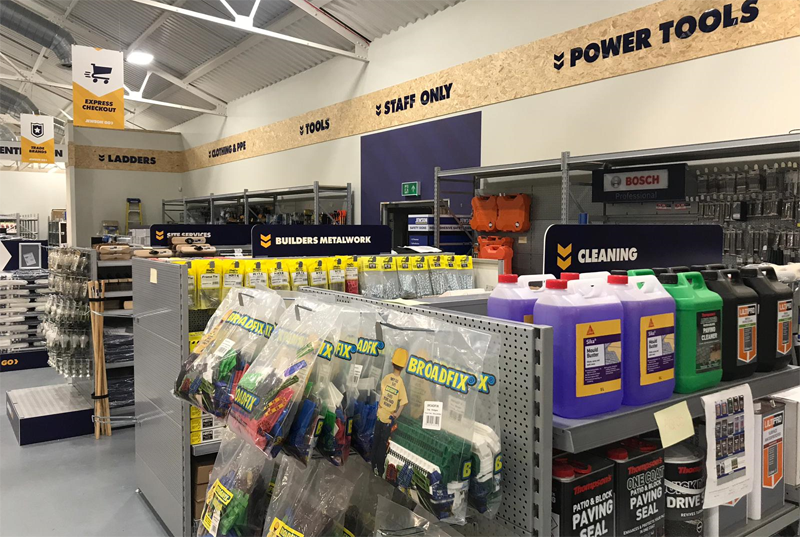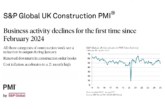
Recent customer surveys conducted by a number of leading merchant groups present an optimistic picture for the industry at large. PBM reports.
A recent survey of over 1,300 tradespeople across the country conducted by Travis Perkins for its Repair Maintenance and Improvement Index has revealed that most remain optimistic for near-term workloads, despite economic uncertainty caused by the pandemic. The survey, conducted in July, featured responses from a significant cross section of the UK market and spanned a wide variety of company sizes, from sole traders (at 53%, the largest segment) through to companies employing up to 100 staff.
Overall, the findings revealed a current ‘confidence index score’ for upcoming workload of 52. This is higher than it was in the aftermath of the Brexit referendum in June 2016 (45) and a significant improvement from the start of the global financial crisis in September 2008 when it slumped to -7.
Domestic RMI work completed by trades in 2019 was valued at £29bn by the Office for National Statistics and the TP poll highlighted that UK tradespeople believe that the overwhelming majority of their work (72%) will come from RMI compared to 16% from new build housing, 15% from commercial and industrial activity, 15% from public sector work and only 2% from infrastructure projects.
Nick Roberts, Travis Perkins CEO, said: “Despite the economic challenges posed by the ongoing pandemic, the majority of tradespeople told us that they are, on the whole, looking towards increased workloads, greater requirements for materials and a resurgent domestic repair and improvement market. The Government may be looking to ‘build, build, build’ to support the UK’s recovery but, so it seems, are thousands of UK homeowners.
“While no one is suggesting that the current economic headwinds are insignificant, it is notable that respondents’ confidence in expected workloads for the next two months compares favourably to the historic data we collected in the immediate aftermath of the collapse of Lehman Brothers in 2008 and the weeks following the Brexit referendum result in 2016.
“The nation’s army of tradespeople already significantly contribute to our economy, but we are also acutely aware of the hugely important role they have played in supporting their communities during the pandemic. Their confidence in the near-term outlook and resilience in the face of such challenging market conditions is something that should give us all cause for optimism at this time.”
In a similar vein, a separate study commissioned by Jewson also highlighted a positive outlook from those in the construction trade, with 73% of tradespeople saying they are optimistic about the amount of work in the pipeline over the next six months. Indeed, 69% of those interviewed said they were expecting either more work (24%) or the same amount of work (45%) in the next six months compared to normal as homeowners become more willing to allow tradespeople back into their homes.
With a lot of the UK population furloughed or working from home in the early stages of lockdown, home improvements surged with 51% of UK homeowners responding to the survey admitting to doing more DIY than usual in the last six months. In the longer term however, only 15% intend to do this with the majority (85%) of respondents stating they would use a tradesperson to complete the same amount of work or more, compared to before the pandemic.
In addition, with much of the UK opting to stay at home this summer, the extra money in people’s pockets saved from cancelled trips abroad may be going towards home improvements — with 77% of UK homeowners saying they are planning to carry out work to their homes in the next 6 to 12 months.
Andrew Cushing, Jewson’s Customer Director, said: “We’ve made it clear since the outset of lockdown just how essential the building industry is, and have done our utmost to ensure our customers — a lot of whom are self-employed — can remain on the tools and get the materials they need. We’re delighted that the outlook is positive for the trade. Long may that continue, and we look forward to helping our customers grow their businesses.”
A further study from Burton Roofing Merchants reinforces the findings of the two national merchant groups. Its own survey of 2,500 homeowners suggests that the UK is experiencing a garden-renovation boom post-lockdown, with almost seven in ten homeowners vowing to imminently (in the next three months) alter any outdoor space they have to include more greenery.
Despite the cost of materials cited as a main consideration (68%) in any outdoor project, 61% of homeowners revealed they would actually be happy to stretch their budget a little further and pay more for tools and materials if they were more eco-friendly. 29% indicated they will also consider the long-term environmental impact of their work before commencing with their garden improvement project.
The research suggests that 25-34 year olds are particularly concerned with the environmental impact of any outdoor home improvements they make, with two fifths suggesting they would look into the sustainability of their materials, compared to only 16% of 45-54 year olds.
Paul Hattee, Managing Director at Burton Roofing, said: “It is fantastic to see so many UK homeowners putting their mind towards an outdoor project during what is a difficult time for everyone. Such spaces are vital for our mental and physical well-being, so it is natural that many want to make their outdoor spaces greener.”
Further detail on the survey findings:
Travis Perkins — https://www.travisperkinsplc.co.uk/sites/travis-perkins/files/2020-08/travis-perkins-rmi-index-2020.pdf
Burton Roofing Merchants — https://www.burtonroofing.co.uk/news/post/the-great-british-rake-off.html.









